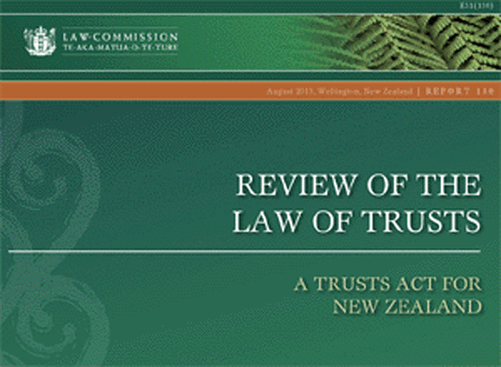Being a Trustee is NOT a box ticking exercise, it is a serious responsibility.
Over the last 4 (or 17 depending on your source) years new legislation for Trusts has been working it’s way through the consultation and legislative process.
It has now been passed into law as the Trusts Act 2019 and it comes into effect on January 30th 2021 and replaces two pieces of existing legislation – the Trustee Act 1956 and the Perpetuities Act 1964. The goal is to make the trust law more accessible and to clarify and simplify the core trust principles and essential obligations for trustees.
The Act incorporates case law developed over the last 50 years which has built up the responsibilities for Trustees and the law will continue to evolve over time through new case law. It is estimated that there are between 300,000 and 500,000 Trusts in New Zealand (one for every 6% - 10%) of people (thats a lot of Trusts!).
A lot of Trusts have not been set up and operated well - at Moneyworks we work with our clients to try and ensure that their Trusts are fit for purpose the documentation is well managed.
But these changes will see an increase in legal, accounting and independent Trustee fees.
Some of these changes may require a revision of how your Trust operates, we strongly recommend that you get in touch with your legal adviser to discuss any implications that you might affect your Trust.
This may well be the right time to review whether the Trust that you are involved with needs to exist going forward or not. Trust disputes are expected to rise, ideally you won't get involved in one of these disputes.
Some of the major changes are to the rights of Beneficiaries. The days of distributing income to beneficiaries on paper only to minimise tax will be over, it is assumed that beneficiaries will know that they are beneficiaries and if there is a current account in their name they may well have a right to demand access to the funds.
The most important features of the new Act are:
Trustees really do have to understand what they are doing and take their role seriously.
Gone are the days when you can just be Trustee in name only. You need to read and understand the Trust Deed. You need to seriously consider the decisions that you are making and the impact on all the beneficiaries.
Being a Trustee is NOT a box ticking exercise, it is a serious responsibility.
These are the duties of Trustees in the new Act:
Mandatory duties
23 Duty to know terms of trust
24 Duty to act in accordance with the terms of the trust
25 Duty to act honestly and in good faith
26 Duty to act for the benefit of beneficiaries or to further permitted purpose of trust
27 Duty to exercise powers for proper purpose
Default duties
28 Default duties
29 General duty of care
30 Duty to invest prudently
31 Duty not to exercise power for own benefit
32 Duty to consider exercise of power
33 Duty not to bind or commit trustees to future exercise of discretion
34 Duty to avoid conflict of interest
35 Duty of impartiality
36 Duty not to profit
37 Duty to act for no reward
38 Duty to act unanimously
2. 40. Restriction on trustee exemption clauses
The terms of a trust must not limit or exclude a trustee’s liability for any breach of trust arising from the trustee’s dishonesty, wilful misconduct, or gross negligence.
3. Trustees must keep core documents. (and these have to be kept for the duration of the trusteeship)
This clause specifies a long list of documents that must be kept by Trustees – see the list here:
4. Beneficiaries knowledge of the Trust
There is a presumption that the Trustees will notify all beneficiaries of the Trust that they are beneficiaries and that the beneficiary can request Trust information.
5. A Beneficiaries Right to Information
Sections 49-55 outlines the requirement for Trustees to make information available to beneficiaries.
There is a presumption that a trustee must make available to every beneficiary or representative of a beneficiary (or in a reasonable time period upon request) the basic trust information. (Clause 51(2) and 53 provides for some exemptions to this presumption).
Basic Trust Information is:
(a) the fact that a person is a beneficiary of the trust; and
(b) the name and contact details of the trustee; and
(c) the occurrence of, and details of, each appointment, removal, and retirement of a trustee as it occurs; and
(d) the right of the beneficiary to request a copy of the terms of the trust or trust information.
- representative means the parent, guardian, attorney, or property manager of a beneficiary who lacks capacity
- trust information—
- means any information—
- regarding the terms of the trust, the administration of the trust, or the trust property; and
- that it is reasonably necessary for the beneficiary to have to enable the trust to be enforced; but
- does not include reasons for trustees’ decisions.
Summary
This Act does change the role of the Trustee, and makes the Trust more open. This is a good time for you to consider the role of your Trust in your estate planning and whether it is appropriate for you to continue to use a Trust to manage some of your wealth. If you aren’t sure, make sure that you discuss this with your Moneyworks adviser over the next 12 months before the new Act comes into force.
This article in the Chartered Accountants magazine is important reading for anyone who is involved with Trusts .
The great NZ trust crackdown


